How to combat scale bugs in your yard – expert advice to manage these sap-sucking pests
These garden pests can cause significant damage to crops and flowers, but there are effective ways to combat scale bugs
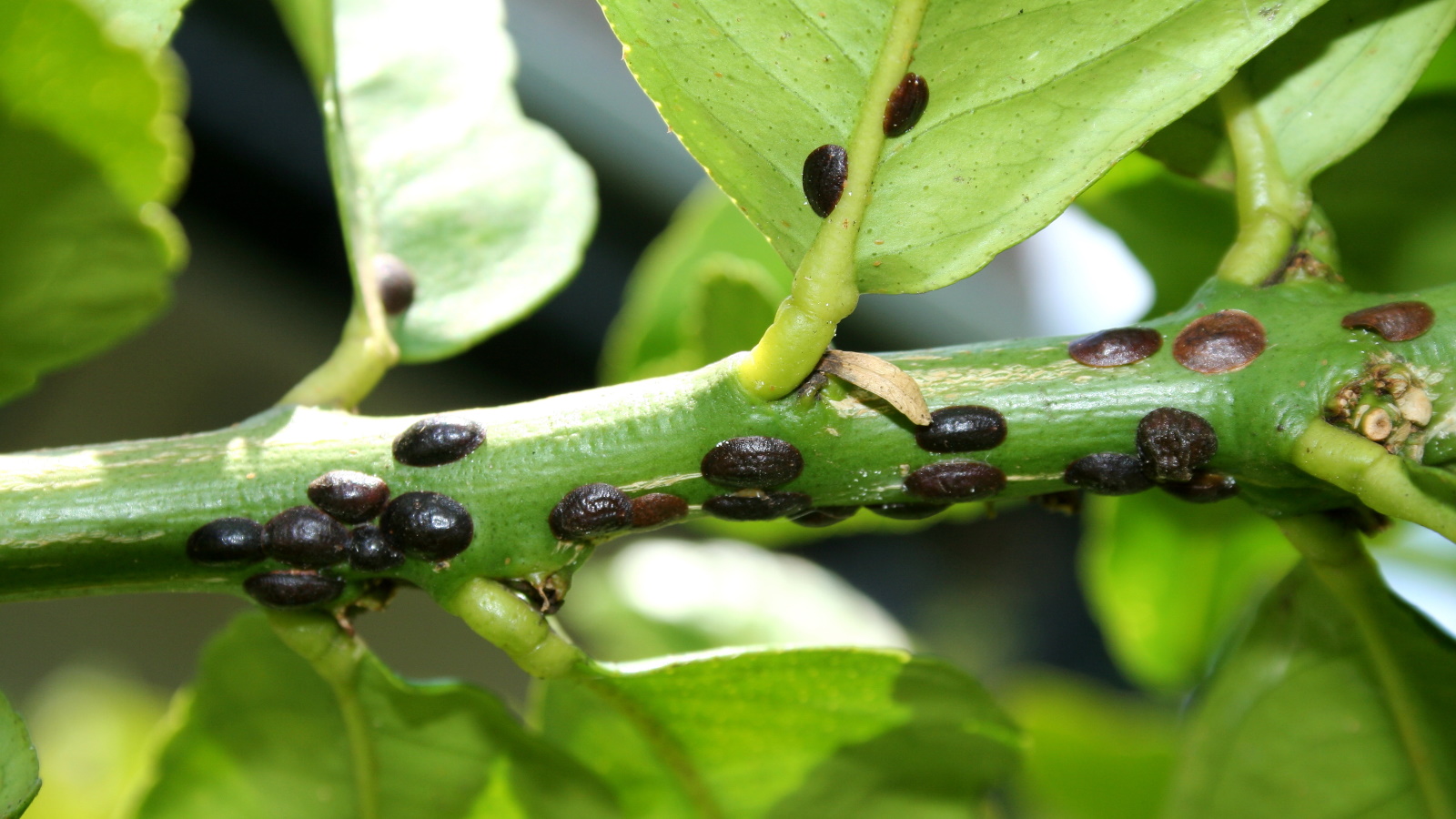

Scale bugs, or scale insects, are small sap-sucking pests that can be a problem in the garden during the spring and summer months. When your plants are thriving, these tiny pests can feast on lush and fresh growth. They can be tolerated in small quantities, but for bigger, problem infestations there are methods and ways to combat scale bugs.
While there are many different types of scale bugs, and they can vary in appearance, the common denominator is that they are covered by an outer waxy shell or casing that looks like scales, as seen in the images here. Mealybugs, for example, are a type of scale bug with a scale-like white covering. This protective adaption makes all scale bugs resistant to some pest control methods.
Identifying and learning to combat scale bugs can be tricky, particularly when these small pests can often be no bigger than 1 to 5mm in size. Helpfully, however, infestations will often appear as clusters on leaves and stems, making them easier to spot. As with any pests, the sooner you identify the problem, the sooner you can prevent it from spreading. Here, a pest control expert reveals how best to combat scale bug infestations in the yard, including the best natural pest control methods to try.
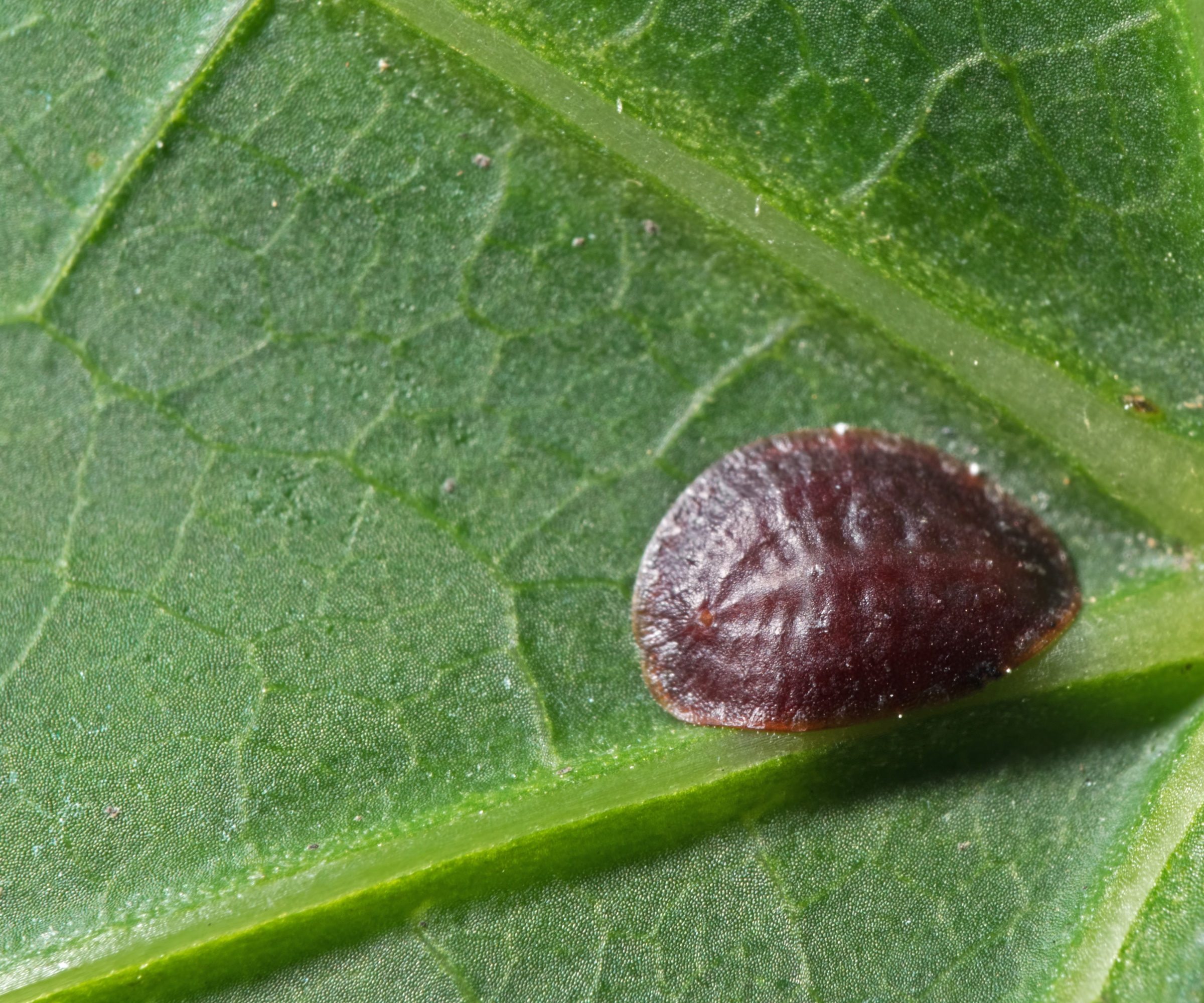
How to combat scale bugs
Regularly inspecting your plants for signs of pest infestation is important. While it might seem like an extra job in the yard when there is already lots of weeding, watering and feeding to be getting on with, adding this to your summer gardening checklist is important. Early detection is key to preventing and managing pests. Keep an eye out for yellowing and wilting foliage or stems, or collections of bugs on plants that should be easy to spot. If you see an infestation, take action with our three expert-approved steps below.
1. Pruning and manual removal
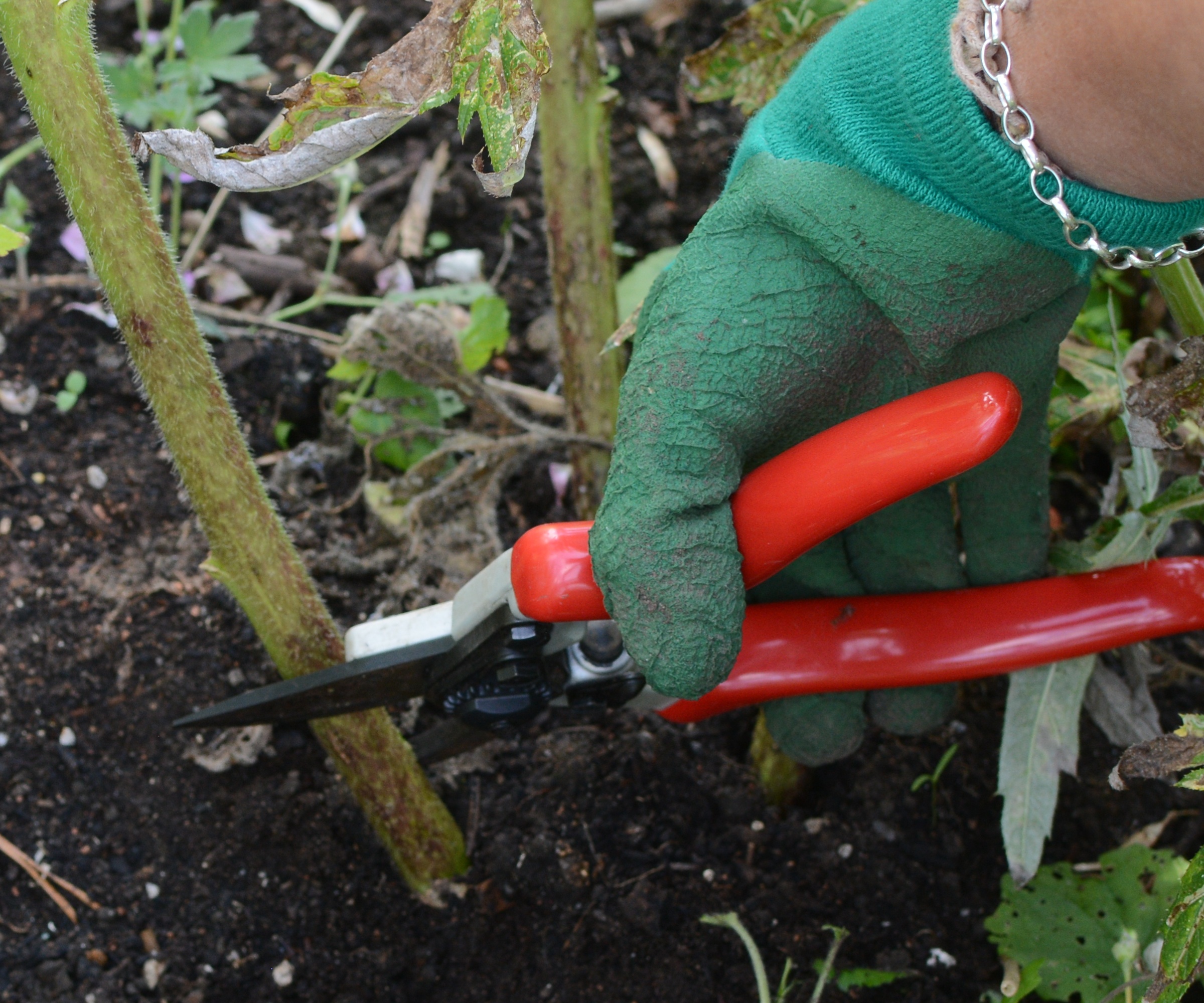
'For smaller scale bug outbreaks, you can manually remove these pests using a cotton swab dipped in diluted rubbing alcohol,' says Reese Robbins, pest expert and founder of Just Pure Gardening. 'Gently dab each bug, taking your time to check under leaves and in tricky places to find the entire colony.'
If you have a larger infestation, Reese recommends 'putting some newspapers around the base of the plant and using a soft brush to scrub the bugs off the leaves and stem. This is effective when dealing with smooth-leaved plants where scale bugs can be easily dislodged.'
If significant damage has been done, it is a good idea to prune and dispose of heavily infested branches and stems. Ensure that you use clean and sharp pruning shears and that your garden tools are sterilized before and after use. Pruning shears are available to buy online from Amazon.
'Dispose of pruned material away from your garden,' Reese adds, 'as this will prevent the spread of scale bugs to other plants in the yard.'

Reese L. Robbins is the founder of Just Pure Gardening, a site full of fruit and vegetable growing guides, garden ideas, and garden product reviews.
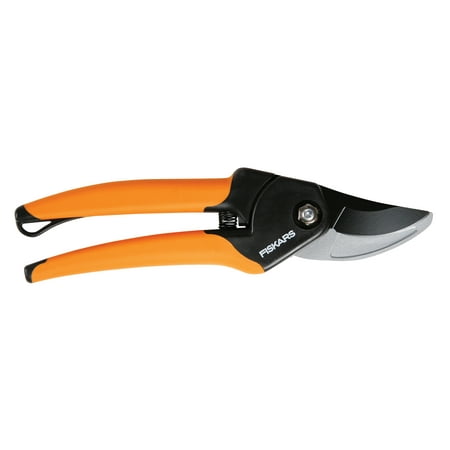
These pruners will make easy work of all your gardening chores, with steel blades offering long-lasting sharpness and a clean cut.
2. Organic treatment
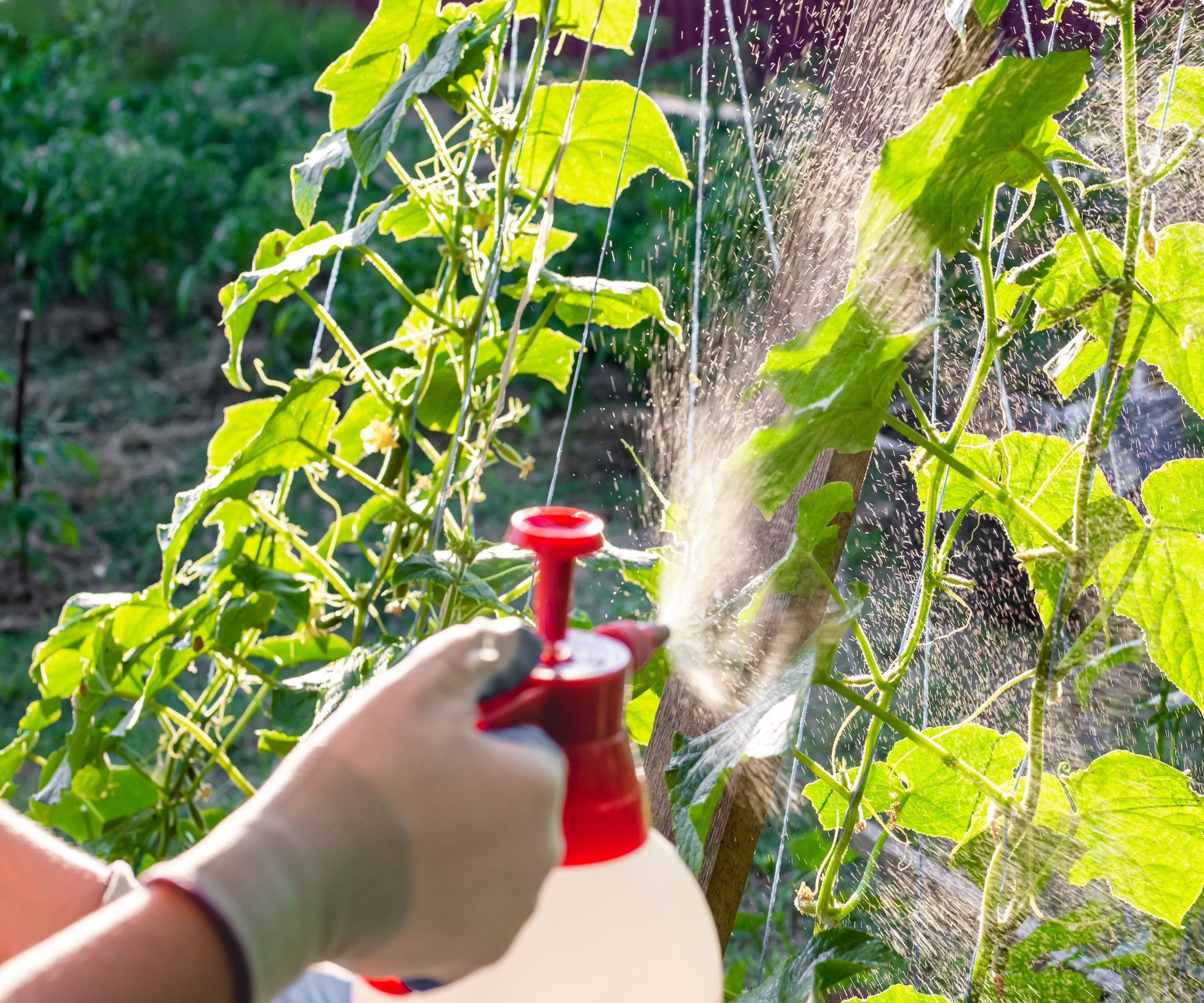
'For severe scale bug attacks, opt for an organic treatment,' Reese says. 'Apply horticultural oils, such as neem oil to affected plants. While this will kill the scale bugs, it will do little harm to your plants or other wildlife.' Neem oil is available to order from Amazon.
These oils suffocate the scale bugs by coating their bodies, helping to stop scale bug infestations from spreading. 'Ensure thorough coverage,' Reese adds, 'spraying the undersides of leaves and along stems, as scale bugs can hide in crevices.'
For significant outbreaks, you may need to repeat applications of neem oil spray, but generally, the pests will disappear after one or two uses.
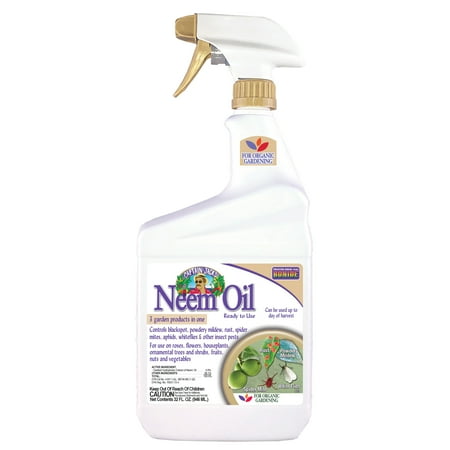
Neem Oil is an all-purpose organic insecticide and fungicide that is safe to use on all your plants and flowers.
3. Encourage natural predators
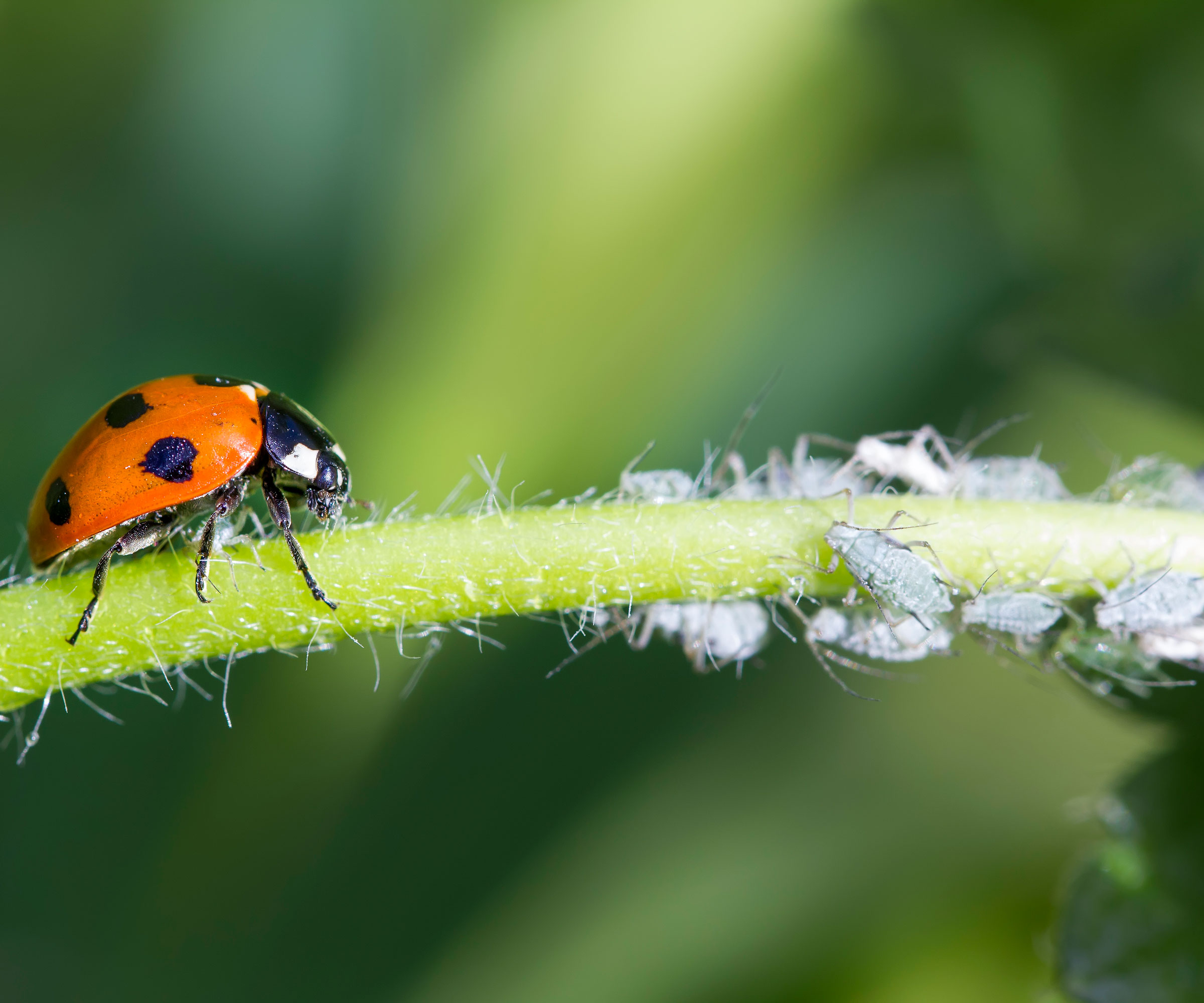
'Attracting beneficial insects such as ladybugs, lacewings, and parasitic wasps can help to combat scale bugs as these are natural predators,' Reese says. Learning how to attract ladybugs to your yard is one way that many gardeners agree can successfully combat challenging pests in the yard. Live ladybugs are available to order online from Amazon.
Planting a diverse array of native plants, such as native dogwood trees, will 'create a rich and biodiverse habitat that supports these beneficial insects, providing them with shelter and food sources throughout the growing season,' Reese continues.
'Attracting these insects will help keep scale populations under control throughout the growing season, and this natural approach to pest control will not harm wildlife.'
FAQs
How long does neem oil take to kill scale bugs?
Within 2-3 days you should start to see a visible reduction in live pests. Be patient, neem oil is an effective organic treatment but can take up to one week to combat scale bugs. For severe outbreaks, you may need to spray affected plants two or three times.
Knowing the right approach to combat scale bugs will help to keep damage to a minimum in your garden. For more pest control information, see our guide on how to get rid of alder leaf beetles, and keep problem pests out of your yard this year.
Sign up to the Homes & Gardens newsletter
Design expertise in your inbox – from inspiring decorating ideas and beautiful celebrity homes to practical gardening advice and shopping round-ups.

Thomas is a Content Editor within the Gardens Team at Homes and Gardens. He has worked as a professional gardener for both public spaces and private estates, specializing in productive gardening, growing food and flowers. Trained in Horticulture at the Garden Museum, he has written on gardening and garden history for various publications, including The English Garden, Gardens Illustrated, Hortus, The London Gardener and Bloom. He has co-authored a Lonely Planet travel book, The Tree Atlas, due out in 2024.
-
 In season - 5 gorgeous daffodil arranging ideas you need to try for spring
In season - 5 gorgeous daffodil arranging ideas you need to try for springFrom rustic to elegant, you need to try these daffodil arranging ideas, which are a cheerful and creative way of bringing the outdoors in this spring
By Katrina Harper-Lewis
-
 My grandma's 'chimney effect' bedroom cooling trick brought goose-pimple inducing relief to help me sleep on the hottest nights in Iran
My grandma's 'chimney effect' bedroom cooling trick brought goose-pimple inducing relief to help me sleep on the hottest nights in IranUse air pressure and temperature differentials to your benefit and beat the heat
By Punteha van Terheyden
-
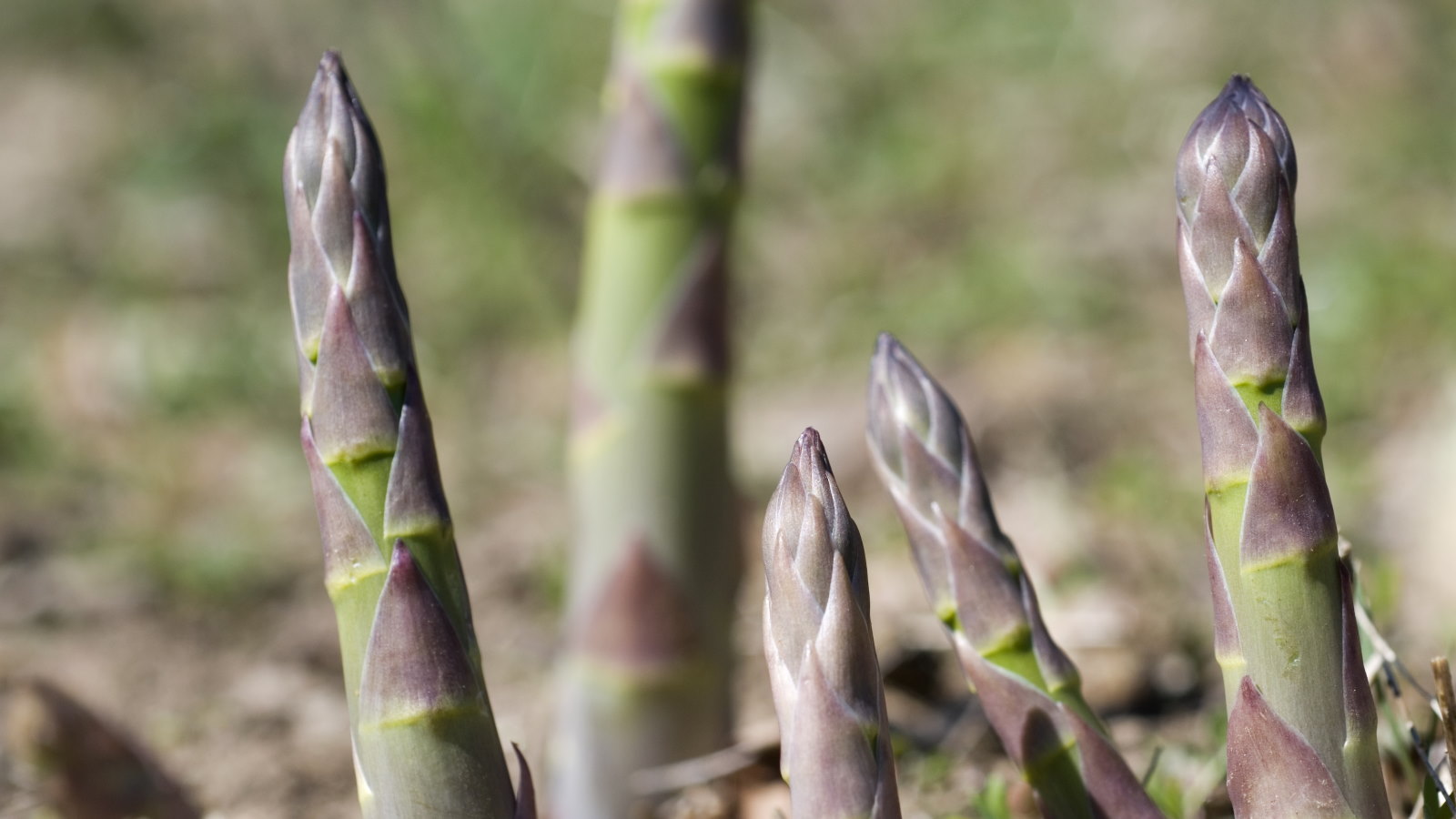 When and how to divide asparagus – expert tips to rejuvenate older plants for better yields
When and how to divide asparagus – expert tips to rejuvenate older plants for better yieldsDividing asparagus crowns is simple and rewarding, but you must get the timing right
By Drew Swainston
-
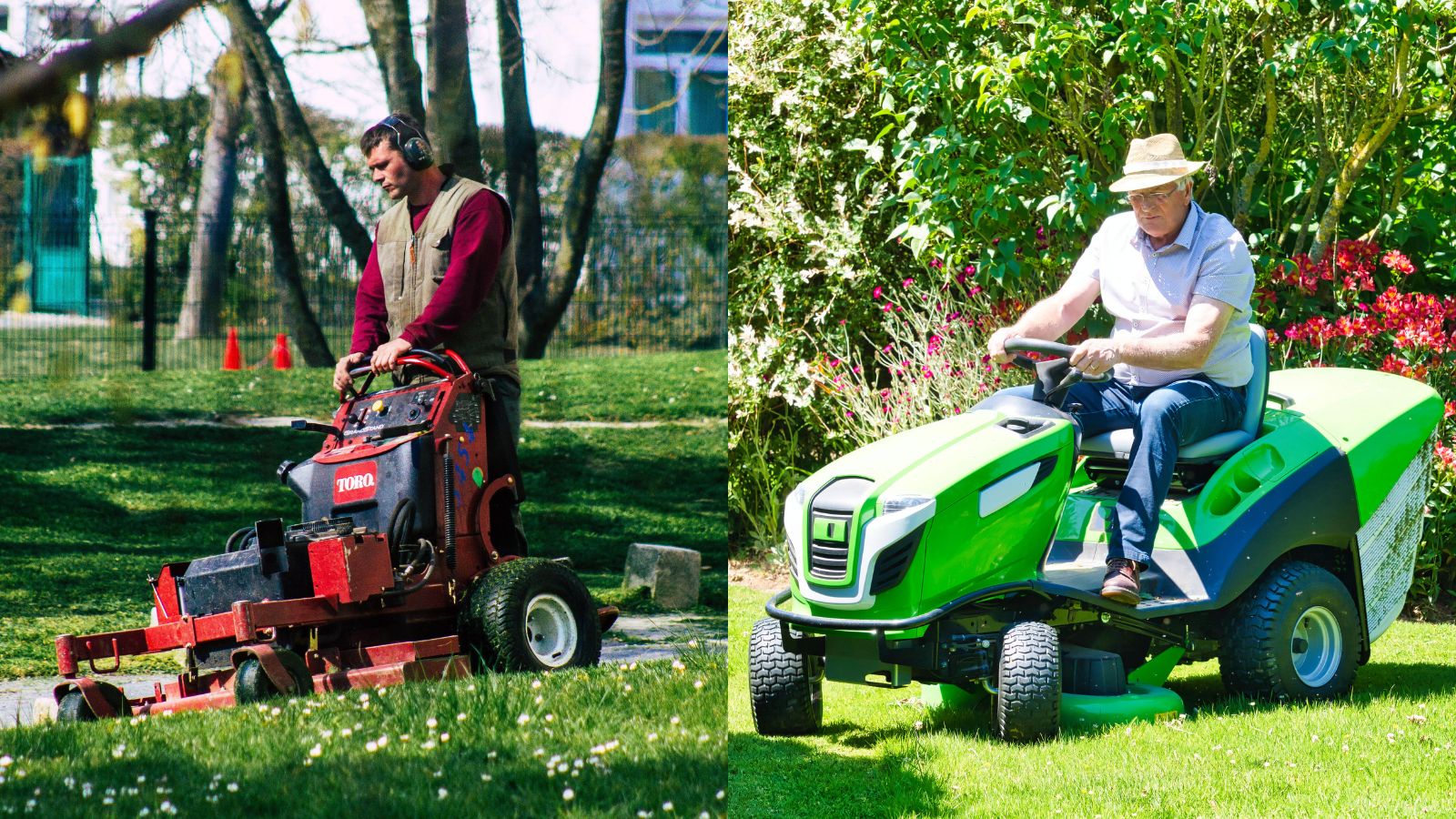 Standing mowers vs riding mowers – a mowing expert reveals which is best
Standing mowers vs riding mowers – a mowing expert reveals which is bestStanding mowers vs riding mowers is a heated debate among landscapers. I spoke to a landscaping expert to find out if standing mowers really are the best
By Alex David
-
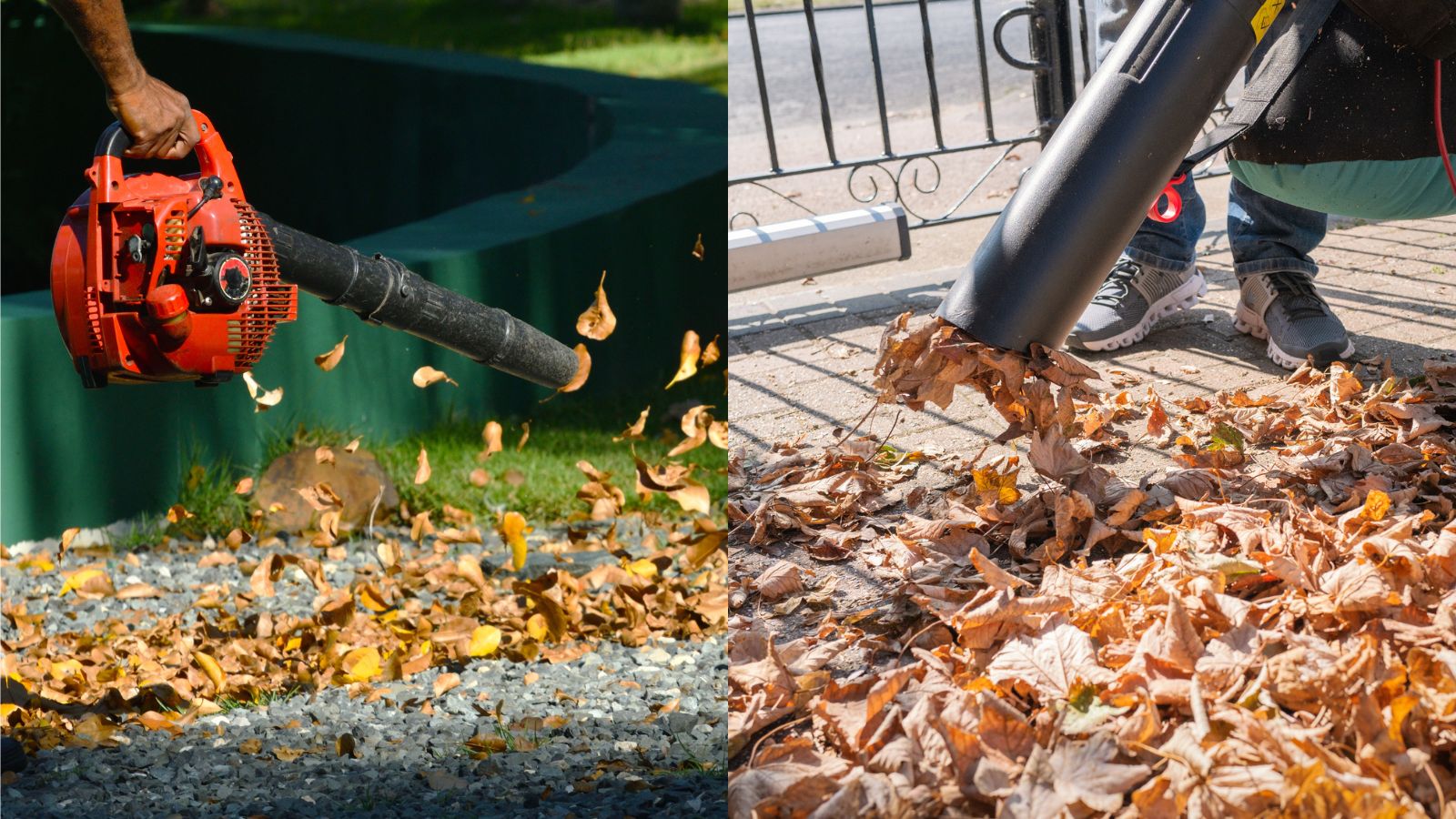 Leaf blowers vs leaf vacuums – which is best for your yard, and should you bother with either?
Leaf blowers vs leaf vacuums – which is best for your yard, and should you bother with either?It's not obvious which is best between leaf blowers v leaf vaccums. As a product tester, this is all you need to know about these controversial yard tools
By Alex David
-
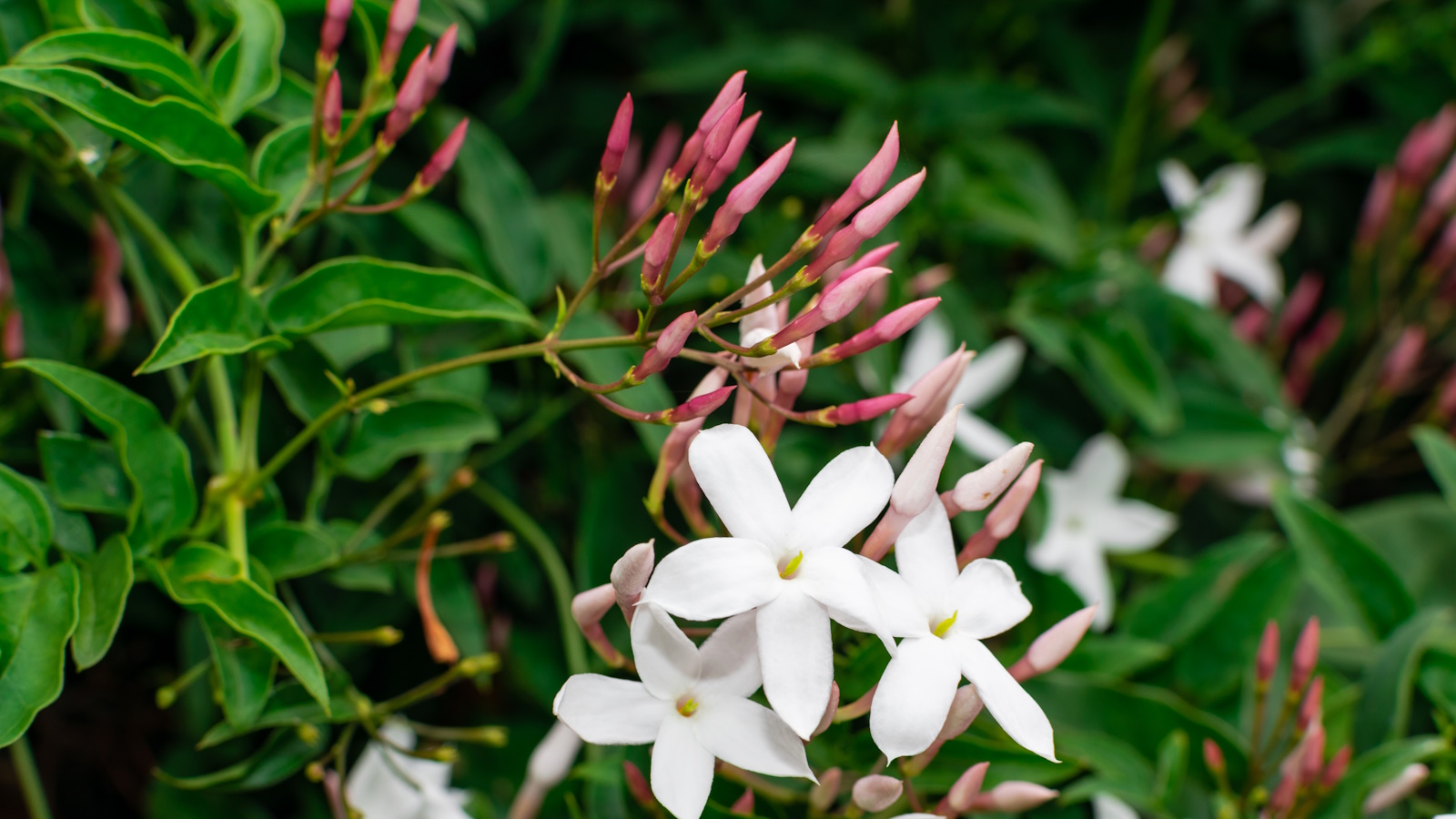 Pruning jasmine in late summer will ensure your plants bloom better than ever next year
Pruning jasmine in late summer will ensure your plants bloom better than ever next yearTiming is critical when pruning summer-flowering climbers
By Thomas Rutter
-
 Weber vs Traeger – which pellet grill should I buy? Advice from a product tester
Weber vs Traeger – which pellet grill should I buy? Advice from a product testerThey're two titans of the grilling game, but who comes out on top between Weber vs Traeger? As a product tester, this is all you need to know about the brands
By Alex David
-
 Bougainvillea in miniature – with a little patience, anyone can grow these vibrant plants in bonsai form
Bougainvillea in miniature – with a little patience, anyone can grow these vibrant plants in bonsai formGrowing bougainvillea bonsai trees can add impact to even the smallest of spaces
By Thomas Rutter
-
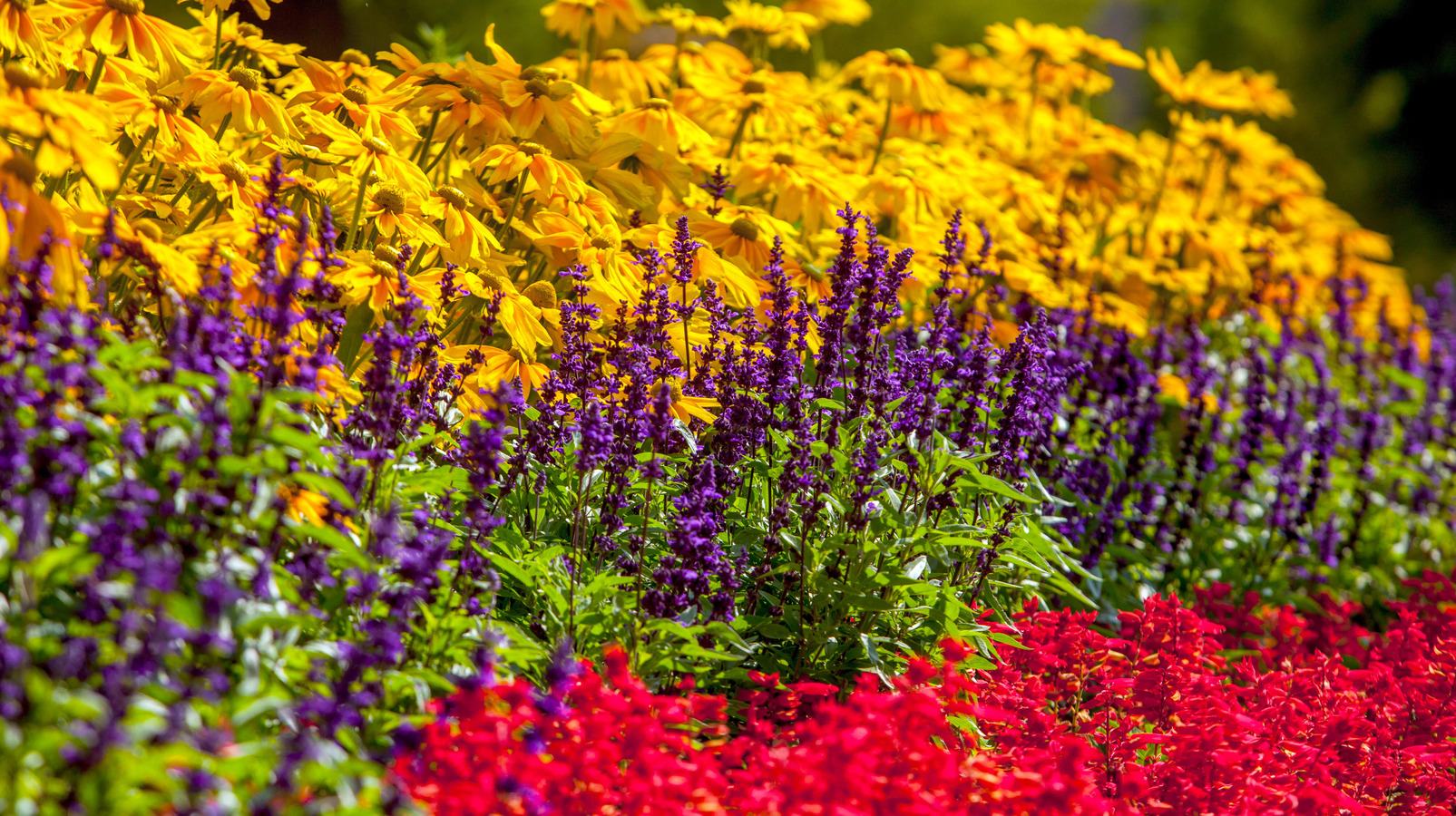 10 low maintenance, drought tolerant plants – for a beautiful and undemanding landscape
10 low maintenance, drought tolerant plants – for a beautiful and undemanding landscapeExpert plant picks for a thriving dry garden, that will make life easier and more colorful
By Jacky Parker
-
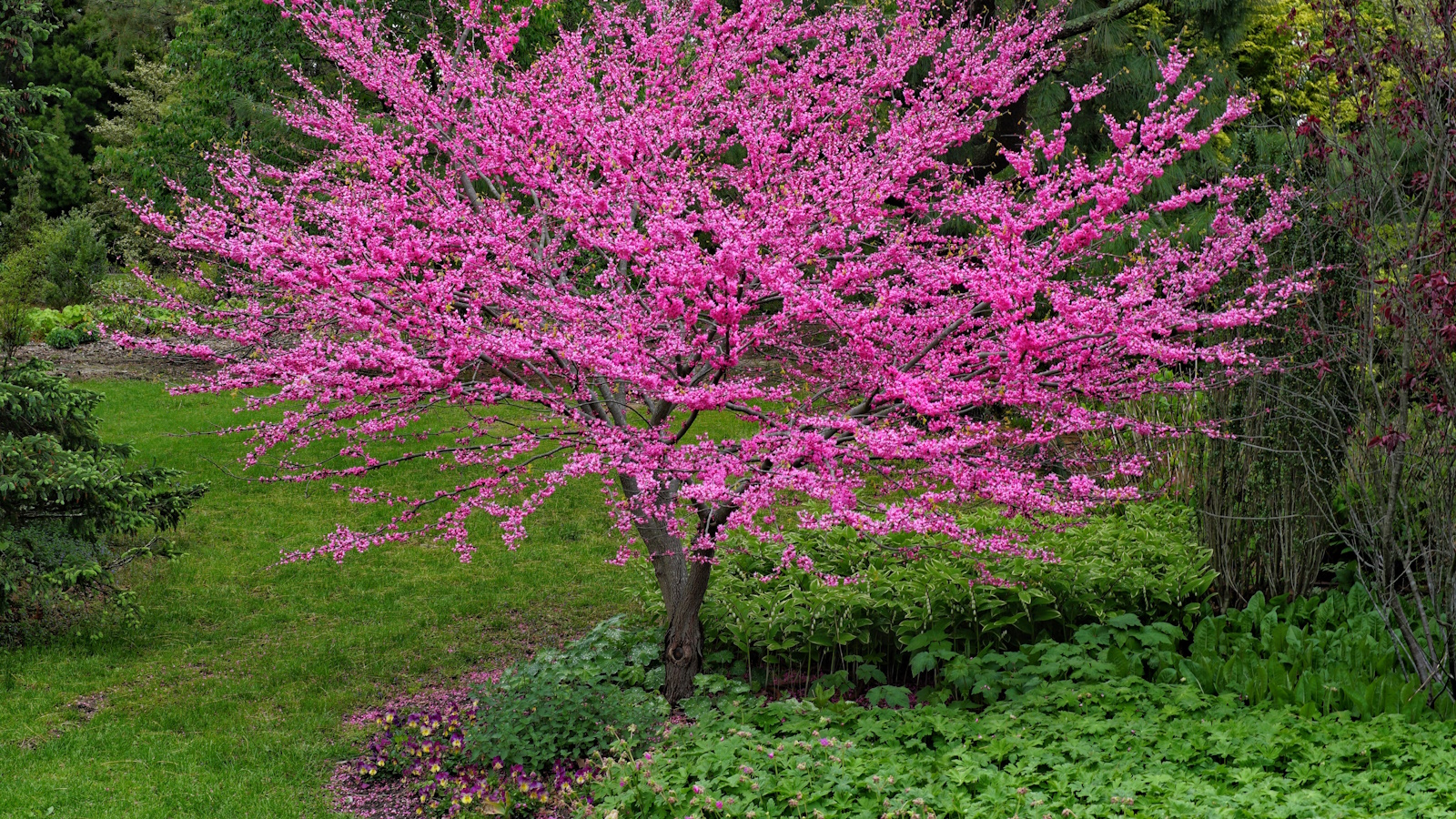 How to grow eastern redbuds – the cherished native tree with striking spring blooms
How to grow eastern redbuds – the cherished native tree with striking spring bloomsAdaptable and reliable, eastern redbuds are tough trees that will not disappoint
By Thomas Rutter